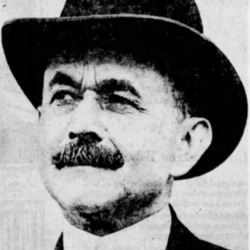THE PROGRESSIVE VIEW
Genuine Philanthropic Needs Best
Attained Through Politics
By Jane Addams.
THE current campaign is full of revelations. Many old-time politicians are doubtless surprised to find that politics has to do with such things as accidents to workingmen, long hours of work for factory girls, the care of the aged, the support of prisoners' families and many similar humane measures designed to lessen the burdens of the oppressed. On the other hand, public-spirited women are learning, many of them for the first time, that they have been caring for orphans whose fathers had been needlessly killed by unguarded machinery; that they have rescued girls driven to desperation through long hours and overstrain who might have been protected by well-tried legislation; that they have founded homes for old people who quite reasonably objected to going to the poorhouse, but who in other countries would have been cared for by systems of old-age insurance; that they have supported the family of many a convict whose labor was adding to the profits of a prison contractor while his wife and children were dependent upon charity. It was not strange that when a political party considered such matters in its first convention women were asked to participate; it would, in fact, have been very unnatural if they had been excluded.
At this convention I found among the delegates scores of people whom I had formerly known in connection with philanthropic associations of national scope. The chairman of the convention was Senator Beveridge, with whom I had spoken at an annual meeting of the national child labor committee when his bill designed to regulate child labor through the interstate commerce acts was before Congress. I had often been associated with Judge Lindsey in conference upon juvenile courts and the care of dependent children, and so on with many another delegate. It did not seem any more strange to me that I should be asked to address this convention, which was considering the same economic and social questions I had often discussed before, than it did that I should speak before such national bodies as the American Economic Association or the National Conference of Charities and Corrections.
Perhaps modern life is changing nowhere so rapidly as at that wavering line which divides philanthropy from politics. One could name many things in Chicago which were first supported by philanthropic women and later taken over into politics, such as the matrons in the police stations, kindergartens in the public schools, and a dozen others. Women who had long discussed such matters in their clubs and organizations would be curiously self-conscious if they refused to be interested in them simply because they had become matters for political action, or if they gave up their activity for fear of losing their "woman's influence."
"Influence," whether of persons or institutions, ceases to be of real value when it is consciously cherished as a possession. Influence must be "a wayside flower," as our old copy-books used to say about happiness.
An institution which stands in the minds of the community for "good works" is in danger of depending upon the integrity of its motive, of substituting the unreal activity of being good to people for the sterner task of ascertaining the real needs of life and of ministering to them in all humility of spirit. The larger plan for meeting these genuine needs can be carried out only with the consent of all the people, and the wisdom of such plan is best submitted to them during a political campaign.
When I am asked why I identified myself with the Progressive party the question many times implies a regret that I should have thus weakened my "influence along philanthropic lines."
In reply I can only make the very sincere statement that in this action I merely follow various measures of social reform and industrial justice which I have long advocated and which the platform of the Progressive party has declared to be matters for political action. When such measures are embodied in a great political document men are filled as never before with a new sense of zeal for their promotion. These measures become more than a confession of faith when candidates of courage and political experience are nominated to be their sponsors, to be accepted or rejected on the merits of the platform as well as on their personalities. The most excellent measures will not appeal to the average voter unless the personalities they are associated with engage his interest.
The presidential candidate of the Progressive party through his long experience believes in nationalism, the candidate for Vice President has demonstrated the potency of the state as a unit of government. A worthy code of social legislation can be secured only through the [cooperation] of the nation and the states, held to a common purpose through party discipline.
Jane Addams
















Comments